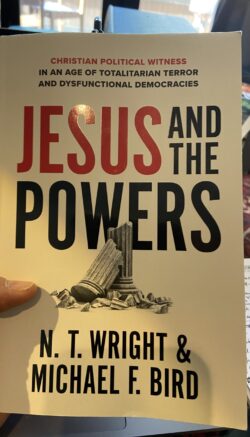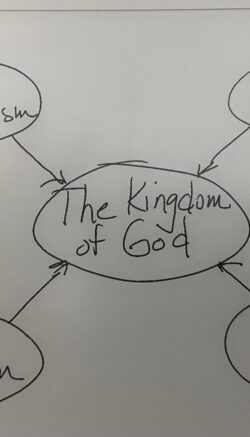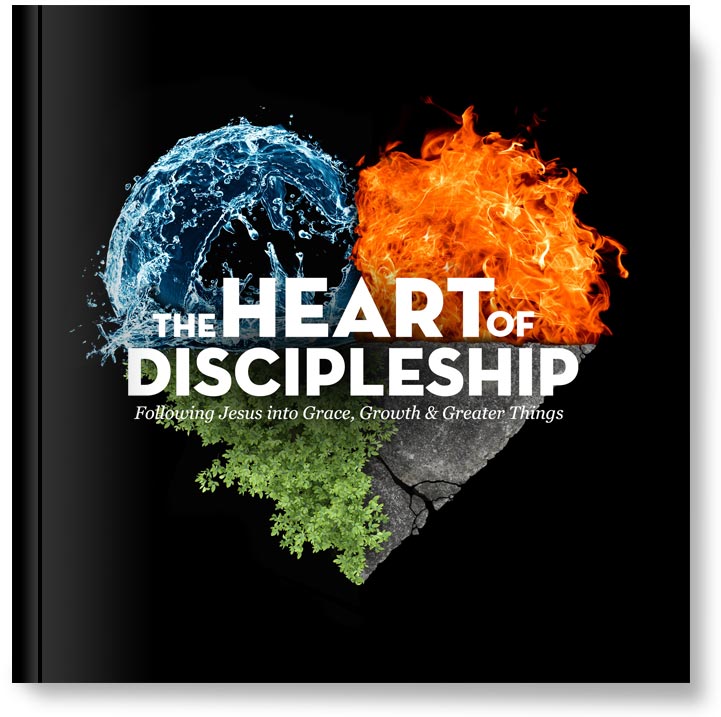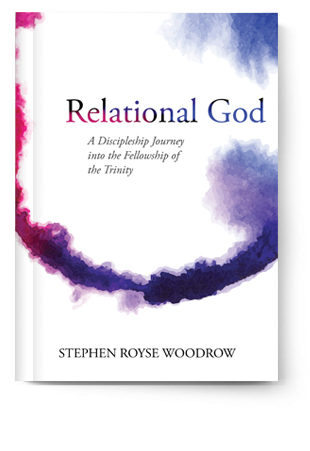“The state which endangers the Christian proclamation negates itself.”
-Dietrich Bonhoeffer
This is a quote by Dietrich Bonhoeffer from one of his messages during the rise of the Nazis in Germany. The power grab by Hitler and the Nazis came quicker than anyone could have imagined. It thrust the German church into turmoil and ultimately the Confessing Church split off from the German Nationalist Church because of their embrace of the Nazi party which included the persecution of the Jews.
So, what should be the church’s attitude toward the state? Eric Metaxes, in his book on Bonhoeffer relates the German pastor’s ideas about Romans 13, “He addressed the issue of the church’s attitude toward the state and created common ground with his skeptical readers by paraphrasing Romans 13: ‘There is no power, but of God; the powers that be are ordained by God.’ In other words, governments are established by God for the preservation of order. The church had no fundamental quarrel with the state being the state, with its restraining evil, even by use of force.” (p.153, Bonhoeffer by Eric Metaxas)
Bonhoeffer enumerated three primary ways in which the church can act toward the state. First, “The church must ‘continually ask the state whether its action can be justified as legitimate action of the state, i.e., as action which leads to law and order and not to lawlessness and disorder.” Metaxas builds on this stating, “In other words, it is the church’s role to help the state be the state. If the state is not creating an atmosphere of law and order, as Scripture says it must, then it is the job of the church to draw the state’s attention to this failing…If the state is creating ‘excessive law and order,’ then ‘the state develops its power to such an extent that it deprives Christian preaching and Christian faith…of their rights…The church, he said, ‘must reject this encroachment of the order of the state precisely because of its better knowledge of the state and of the limitations of its action. The state which endangers the Christian proclamation negates itself.’” (p.153) So, there is much wisdom we can pull from Bonhoeffer when it comes to the Christians role in politics. Of primary importance is for the Christian to first be biblically minded before speaking into politics. As followers of Jesus we are first to obey Him and pursue wisdom from the Holy Spirit how and when to speak into political issues. The church should be wrestling with public policy issues within its discipleship process so people have an opportunity to learn to be biblically formed before being politically active. According to Romans 13 the primary role of the state is law and order. This has many ramifications for how a Christian is to view the role of government.
The second way the church can act toward the state according to Bonhoeffer was to “aid the victims of state action,” for the church “has an unconditional obligation to the victims of any ordering of society, even if they do not belong to the Christian community.” Metaxas comments, “Everyone knew that Bonhoeffer was talking about the Jews…Bonhoeffer then quoted Galatians: “Do good to all men.” We can see this principle throughout the history of the church where they stepped in and served the outcast, oppressed and orphaned. But unfortunately we can also see times throughout history where parts of the church condoned actually oppressing certain people in direct violation of biblical commands. The two most recent grave sins would be the part of the German church that supported oppression of the Jews and the part of the American church that supported slavery.
The ongoing discussions today about diversity, equality and equity are very important and the church should be speaking into these issues, but unfortunately much of what is being adopted and advocated is not biblically informed but philosophically informed from a progressive worldview. The biblical record is consistent and clear that all humans are created equal and in God’s image. But, the biblical record is also clear that to uphold these blessings among diverse peoples around the world that diversity does not have to be forced and should not be. God in His sovereignty chose Abraham and the Jewish people to be His covenant people. This does not negate the value of the other cultures, for Jesus came to save all, it means God can and will chose certain people to do His tasks. Jesus chose twelve men and twelve Jewish men to be His disciples. He did not have a woman nor any other culture represented when he chose His inner circle to take the gospel to all people. This does not mean He values them more because they are men and Jews, but only that He chose them for His specific purpose. If diversity is forced personal responsibility and unique calling and qualification are forfeited. And this is where we find our culture today.
The third way the church can act toward the state according to Bonhoeffer, “is not just to bandage the victims under the wheel, but to put a spoke in the wheel itself.” Metaxas clarifies, “a stick must be jammed into the spokes of the wheel to stop the vehicle. It is sometimes not enough to help those crushed by the evil actions of a state, at some point the church must directly take action against the state to stop it from perpetrating evil. This, he said, is permitted only when the church sees its very existence threatened by the state, and when the state ceases to be the state as defined by God.” Bonhoeffer’s also stated, “A state which includes within itself a terrorized church has lost its most faithful servant.” (p.154)
Now this raises all kinds of questions. When does the church defy the state? For Bonhoeffer, he finally came to the conviction that he needed to get involved in the resistance and do everything he could to resist Hitler and the advance of the Nazis. This conviction eventually had him involved in an assassination attempt on Hitler’s life. He was caught by Hitler and hanged in a concentration camp 2 weeks before the Allied troops set Germany free from the Nazis. What would you have done? We will discuss this issue in more detail in future blogs.
3





